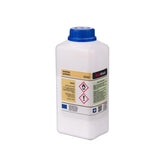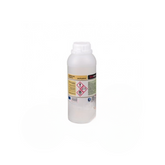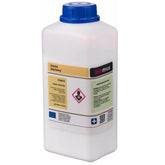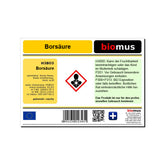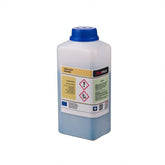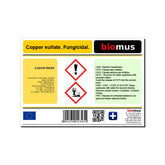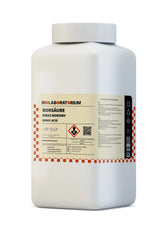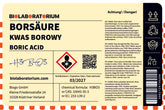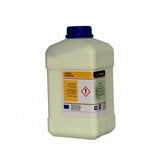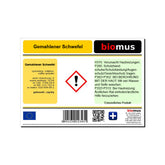Sorbitol, also known as D-glucitol, is an important technical polyol with numerous application possibilities across various industries. As a sugar alcohol, sorbitol possesses unique properties that make it a valuable raw material. In this blog post, we take a closer look at the characteristics of sorbitol, its technical application areas, as well as aspects of safety and sustainability.
The properties of sorbitol
Sorbitol is a crystalline, white solid produced from glucose. It is characterized by a range of interesting properties:
Sweetness and calorie content
Sorbitol has significantly less sweetness, about 60% of the sweetness of sucrose. At the same time, with 2.4 kcal/g, it contains only about half the calories of sugar. These properties make sorbitol a popular sugar substitute in low-calorie or sugar-free foods.
Solubility and viscosity
Sorbitol is highly soluble in water and forms clear, viscous solutions. This property is utilized, for example, in moisturizing creams or syrups.
Crystallization behavior
Unlike sucrose, sorbitol does not tend to crystallize. This makes it valuable for producing smooth, creamy products like ice cream or jellies.
Moisture Binding
Sorbitol is hygroscopic, meaning it can bind moisture from the environment. This prevents the drying out of food and cosmetic products.
Chemical Stability
Sorbitol is relatively stable against acids, bases, and oxidizing agents. This enables its use in a wide variety of applications.
Technical Applications of Sorbitol
Due to its versatile properties, sorbitol is used in numerous industrial sectors:
Food Industry
In food production, sorbitol serves as a humectant, sugar substitute, texturizing agent, and stabilizer. It is found in confectionery, baked goods, beverages, ice cream, and many other products.
Cosmetics and Pharmacy
Sorbitol is used in creams, lotions, shampoos, and other personal care products. It is also used in pharmaceuticals, for example as a solubilizer or humectant.
Chemical Industry
As a chemical building block, sorbitol can be used diversely in the production of paints, adhesives, plasticizers, and other industrial products.
Paper and Textile Industry
Sorbitol serves here as a humectant and plasticizer to keep paper and textiles supple and dimensionally stable.
Other
Other application areas include, for example, desiccants, antifreeze, hydraulic fluids, and lubricants.
Safety and Sustainability of Sorbitol
Sorbitol is a safe and environmentally friendly raw material. As a sugar alcohol, it is well-tolerated by the human body. Only in very high doses can it have a laxative effect. For diabetics, sorbitol is a suitable sugar alternative.
From an ecological perspective, sorbitol is a sustainable substance as it is produced from renewable raw materials such as corn or wheat. The production process is also relatively energy-efficient. Sorbitol is biodegradable and can be safely released into wastewater or compost.
Overall, sorbitol offers numerous advantages for industry and consumers as a versatile, safe, and environmentally friendly polyol. Its unique properties make it a valuable raw material in many application areas.


